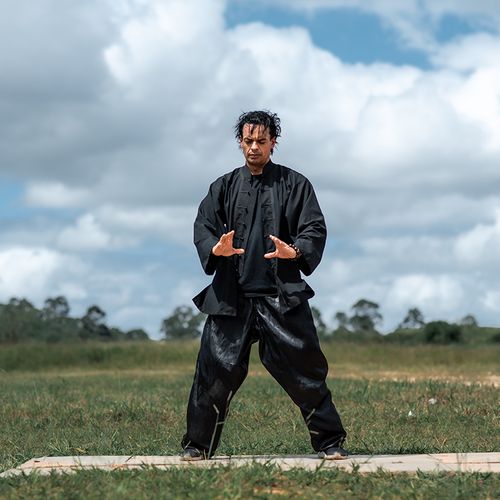Fibromyalgia sufferers may find relief from the chronic pain condition by doing tai chi, new research finds.
Fibromyalgia And Tai Chi
Fibromyalgia is characterized by multiple tender points, widespread pain, fatigue and low-quality sleep. The syndrome can also cause psychological issues, including anxiety, depression, and memory and concentration problems, sometimes called the "fibromyalgia fog."
About 10 million Americans have fibromyalgia, and about 75% to 90% of them are women, according to estimates from the National Fibromyalgia Association.
The Study
Researchers divided 66 people with fibromyalgia into two groups: One group did hour-long sessions of tai chi twice a week for 12 weeks; the other had a twice-weekly wellness education class followed by gentle stretching.
At the end of 12 weeks, the tai chi group reported improvements in their scores on questionnaires regarding both physical and mental fibromyalgia symptoms. That included decreased pain and increased ability to do daily tasks without pain; less fatigue, depression and anxiety; and an overall better quality of life. Patients also reported better sleep quality and improved physical conditioning.
The improvements were still evident at 24 weeks. The study was published in The New England Journal of Medicine.
Implication
Doctors will often suggest exercise, sleep hygiene techniques and medications to treat the condition, but often with limited success, said Gloria Yeh, MD, MPH, an assistant professor of medicine at Harvard Medical School, who wrote an accompanying editorial in the journal.
Most patients, according to background information in the article, remain in pain years after the diagnosis, are aerobically unfit, have poor muscle strength and flexibility, and need medications to control symptoms.
While larger studies are needed to confirm the findings, tai chi looks promising as an alternative treatment, Dr. Yeh said.
Possible Explanation
So what is it about tai chi that works?
There's no definitive answer to that just yet, said Chenchen Wang, MD, MSc, a Tufts University rheumatologist who led the study. Prior research has shown exercise can improve mood, Dr. Wang said. The controlled breathing and movements of tai chi may promote "mental tranquility,” according to the study, which could help with pain.
"The physical component of tai chi can improve aerobic capacity, strength and muscle function," Dr. Wang said. "But in my opinion, the most important part is mental. You see lots of patients improve their depression and become good friends with each other."
The National Center for Complementary and Alternative Medicine of the US National Institutes of Health provided funding for the research.
